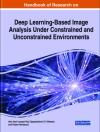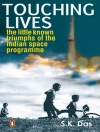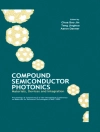Enterprise Interoperability X presents contributions ranging from academic research and case studies, to industrial and administrative experiences with interoperability. These contributions help organizations to analyse and improve their products and processes in the face of the high degree of uncertainty in the current commercial environment, and to predict their performance. To this end, the contributors exploit digital twin technology that integrates tools from the Internet of Things, artificial intelligence and software analytics. Enterprise interoperability necessarily arises from the processes required to make associated digital twins work together.
The book forms the proceedings of the I-ESA’22 Conference, which was organised by the Universidad Politécnica de Valencia, on behalf of INTERVAL and the European Virtual Laboratory for Enterprise Interoperability (INTEROP-VLab), and was held in Valencia, Spain in March 2022. Many of the papers in this eleventh volume oftheProceedings of the I-ESA Conferences include examples and illustrations to help deepen readers’ understanding and generate new ideas. Offering a detailed guide to the state of the art in systems interoperability, the book will be of great value to all engineers and computer scientists working in manufacturing and other process industries, and to software engineers and electronic and manufacturing engineers working in academic settings.
Spis treści
Tentative:
Part I: Architectures and Frameworks for Enterprise Interoperability.- Part II: Artificial Intelligence for Enterprise Interoperability.- Part III: Collaborative Supply Networks for Enterprise Interoperability.- Part IV: Digital Platforms for Enterprise Interoperability.- Part V: Digital Twins for Enterprise Interoperability.- Part VI: Enterprise Modelling for Enterprise Interoperability.- Part VII: Industrial Implementation for Enterprise Interoperability.- Part VIII: Interoperability for Crisis Management.- Part IX: Interoperability for Industry 4.0.- Part X: Ontologies for Enterprise Interoperability.- Part XI: Semantics for Enterprise Interoperability.- Part XII: Services Innovation for Enterprise Interoperability.- Part XIII: Standardization to Enhance Enterprise Interoperability.
O autorze
Raúl Rodríguez-Rodríguez: Full professor in Operations Management at the Polytechnic University of Valencia. He is a full member of the Research Center of Production Management and Engineering (CIGIP) since 2005, having worked on several Spanish Government and European Projects (i.e. he has been PI of FP7-PEOPLE-2012-IAPP-Knownet, Ref. 324408), being part of the Research Unit of Performance Engineering and Management within Organisations. He has published about 120 research papers in a number of leading journals and in several international conferences, mainly in the area of decision-making, information systems and operations management. His key research topics include Performance Management Systems, Supply Chain Management and strategic IS. ORCID: 0000-0001-5133-7023.
Yves Ducq: He is a specialist in the domain of Enterprise Modelling (EM)), BPM (Business Process Management), Enterprise Interoperability (EI), System Performance Evaluation and Implementation of Indutrie 4.0 solutions. He is the main author of the GRAI Model and the GRAI Integrated Methodology (GIM) since the 1980s and has managed more than twenty important European and International projects during the last 30 years in his competence domains (Pirelli, British Aerospace, Iberia, Siemens, Scania, Aérospatiale, ALCATEL, SNECMA, Schlumberger, Lyonnaise des Eaux, INTEROP-No E but also with several SMEs …). He has published more than 300 articles and four books.
Ramona-Diana Leon: Associate Professor at the Polytechnic University of Valencia. In the past years, she was involved in several projects about social media, knowledge management and quality management. She published several books, book chapters and articles in these fields and as a full member of the International Association for Knowledge Management, she collaborated with academics and managers from Romania, Spain, Italy, Greece, and UK. Her main research interests include: enterprise social networks, early warning systems, knowledge sharing and collaborative innovation. ORCID: 0000-0003-3610-0751.
David Romero: Senior Research Scientist and Scientific Project Manager at the Center for Innovation in Design and Technology of the Tecnológico de Monterrey University in Mexico, as well as National Academia Representative and Coach for the Regional Secretariat of Intelligent Manufacturing Systems (IMS) – Mexico. His research interests include: Circular Manufacturing, Service Engineering and Product-Service Systems, Cyber-Physical Systems & Human Systems, Advanced Production Management Systems, Green Virtual Enterprises, and Technology and Engineering Management. He is a member of the Society of Collaborative Networks, the IFAC TC5.3 on Enterprise Integration and Networking, the IFIP WG5.7 on Advances in Production Management Systems, the IFIP WG5.12 on Architectures for Enterprise Integration, the IEEE Technology and Engineering Management Society, and the IEEE Internet of Things Community. Furthermore, he is an Agenda Contributor at the World Economic Forum (WEF) Council on “Shaping the Future of Advanced Manufacturing and Production”, and a World Manufacturing Forum (WMF) Ambassador. He has published more than 100 journal and international conference articles and serves at different editorial and scientific committees and advisory boards in academia, industry, and government in the disciplines of business and industrial engineering. Nowadays he focuses on promoting the concepts of the 'Operator 4.0′ and 'Digital Lean Manufacturing’; father of both terms.












